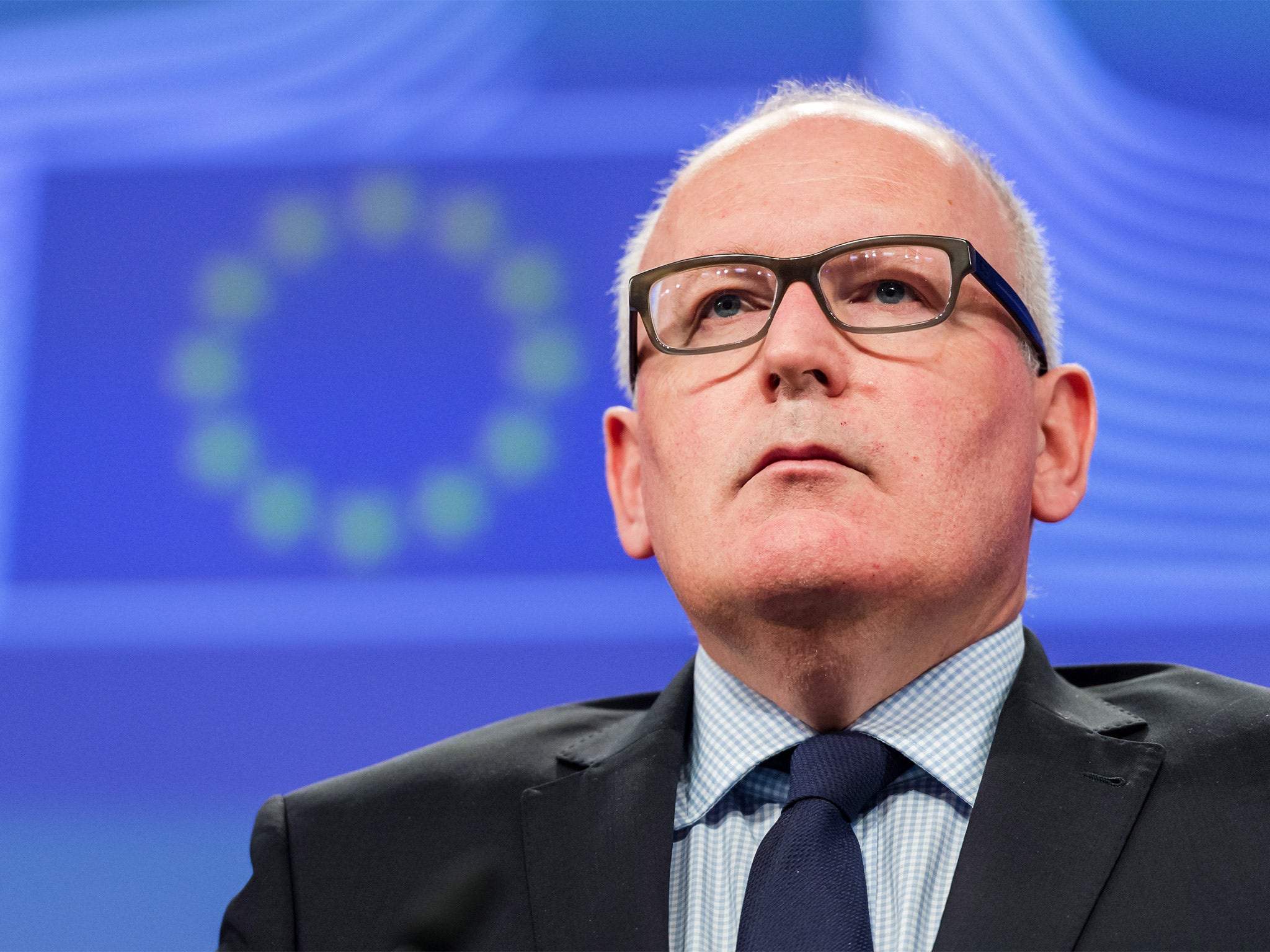EU ministers set tougher 2030 climate target into law
Move to enshrine new emissions target in law is ‘floor not the ceiling’, with more battles over its fineprint expected in new year, analyst says

EU ministers have enshrined a new tougher emissions target for 2030 into law, setting the stage for further debate over the bloc’s level of climate ambition in the new year.
The bloc first announced it would aim to cut its greenhouse gas emissions by at least 55 per cent by 2030, when compared to 1990 levels, after an all-night summit last Thursday.
The EU has also now submitted its tougher 2030 climate pledge to the UN, a “really big move” signifying leaders are looking to show their respect to the deadline set under the Paris Agreement, an analyst says.
Posting on Twitter after the target was enshrined in law on Thursday, Frans Timmermans, vice-president of the European Commission said: "With the official adoption at the Environment Council we are ready to submit the new EU nationally determined contribution under the Paris Agreement.
“Cutting emissions by 55 per cent by 2030 sets us on the path to #ClimateNeutralEU and raises the bar for global climate action.”
Under the Paris Agreement – the international climate deal made in 2015, all countries are expected to come up with tougher climate targets this year.
Some countries, including the UK, Japan and several developing world countries, have submitted their pledges to the UN, which are known as “nationally determined contributions”.
However, others are not expected to meet the deadline, with many citing the disruption caused by the Covid pandemic as a mitigating factor.
“The EU’s 2030 target is now fully legal and they’ve just submitted it to the UN. That is a really big move because it means they are respecting the Paris Agreement deadline,” Jennifer Tollmann, a senior policy adviser at the climate think tank E3G, told The Independent.
“This is a really strong baseline to have gotten to, but this is the floor not the ceiling. There is potential to get more next year,” she added.
The new year is likely to bring more debate over whether the EU’s 2030 emissions target is ambitious enough, and what policies should be put in place to make sure it is achieved, according to Ms Tollmann.
The new 2030 target is a 15 percentage point increase on the EU’s previous 2030 pledge under the Paris Agreement.
However, it is unlikely to be ambitious enough to allow the EU to do its bit to keep global temperature rise to well below 1.5C above pre-industrial levels, the most stringent target set by the Paris Agreement, said Ms Tollmann.
And next year the European Council will enter into negotiations with the European Parliament, who have previously pushed for a more ambitious 2030 emissions reduction target.
“This is really the beginning of a full-on legislative process,” Ms Tollmann said. “But it is the thing that makes this legal just in time to meet the Paris Agreement deadline.”
Join our commenting forum
Join thought-provoking conversations, follow other Independent readers and see their replies
Comments
Bookmark popover
Removed from bookmarks